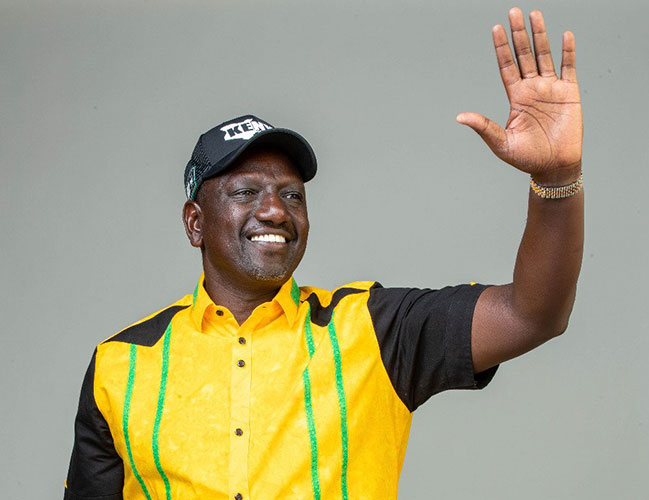Nairobi – Deputy President William Ruto is edging ahead of his main rival Raila Odinga in Kenya’s presidential election, partial official results showed on Sunday, underscoring the tight race as the country anxiously awaits the final outcome.
Ruto scored 51.25% of the vote, reversing earlier gains for Odinga, who had 48.09%, according to figures from the Independent Electoral and Boundaries Commission (IEBC), which has tallied results from nearly 50% of constituencies.
Tuesday’s vote passed off largely peacefully but with previous elections sparking violence and rigging claims, the IEBC is under intense pressure to deliver a clean poll and release results by Tuesday.
Riot police were deployed overnight inside the commission’s heavily-guarded tallying centre in the Kenyan capital Nairobi after political party agents disrupted the process, hurling rigging allegations at each other.
ALSO READ | Kenya’s Odinga slightly ahead in presidential race, early results show
The commission’s chairperson Wafula Chebukati on Friday accused party agents of delaying the tallying process by haranguing election workers with unnecessary questions.
The wait has left Kenyans weary, with many hoping that any disputes over the result are addressed peacefully through legal means.
The poll pitted Odinga, a veteran opposition leader now backed by the ruling party, against Ruto, who was widely expected to succeed President Uhuru Kenyatta until his boss joined hands with former foe Odinga in a dramatic shift of political allegiances.
The election is being closely watched by an international community that views Kenya as a pillar of stability in a volatile region, with US Secretary of State Antony Blinken describing the country’s polls “as a model for the continent”.
“We encourage peace and patience as the vote tallying continues from the August 9 elections,” Blinken said on Twitter late on Saturday.
ALSO READ | Kenya election commission says vote tally moving too slowly
Authorities in the East African nation have been struggling to get the economy back on its feet, after the twin shocks of the Covid-19 pandemic and the war in Ukraine, which sent food and fuel costs spiralling.
The economy has been a key theme throughout the campaign, with many citizens calling on leaders to tackle the cost-of-living crisis.
Turnout was about 65%, much lower than the 78% recorded in 2017, a reflection, some observers say, of the disenchantment with the political elite, particularly among young people.
The winner of the presidential race needs to secure 50% plus one vote and at least a quarter of the votes in 24 of Kenya’s 47 counties.
If not, the country will be forced to hold a runoff within 30 days of the original vote.
Both frontrunners have pledged to ensure calm after the outcome is known, with Kenyans still haunted by the deadly violence that followed the 2017 and 2007 polls.
Follow African Insider on Facebook, Twitter and Instagram
Source: AFP
Picture: Twitter/@K_Portus
For more African news, visit Africaninsider.com


